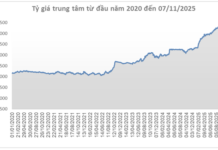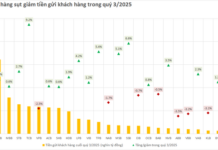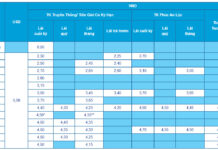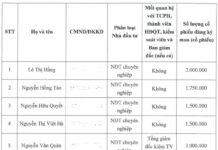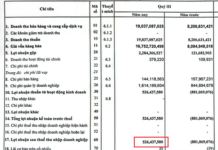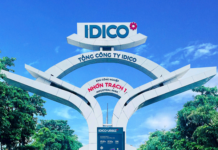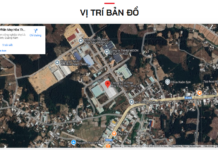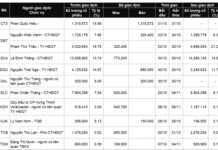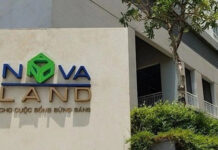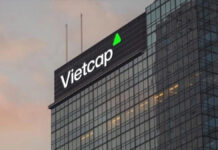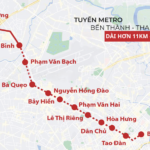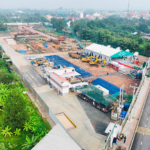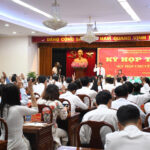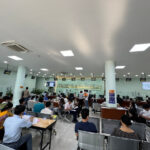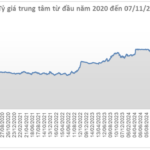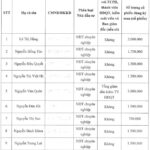The People’s Committee of Ho Chi Minh City has issued Decision No. 25/2025, delegating the Department of Construction, relevant units, and commune-level People’s Committees to monitor, inspect, detect, prevent, and handle unauthorized and improperly permitted construction activities.
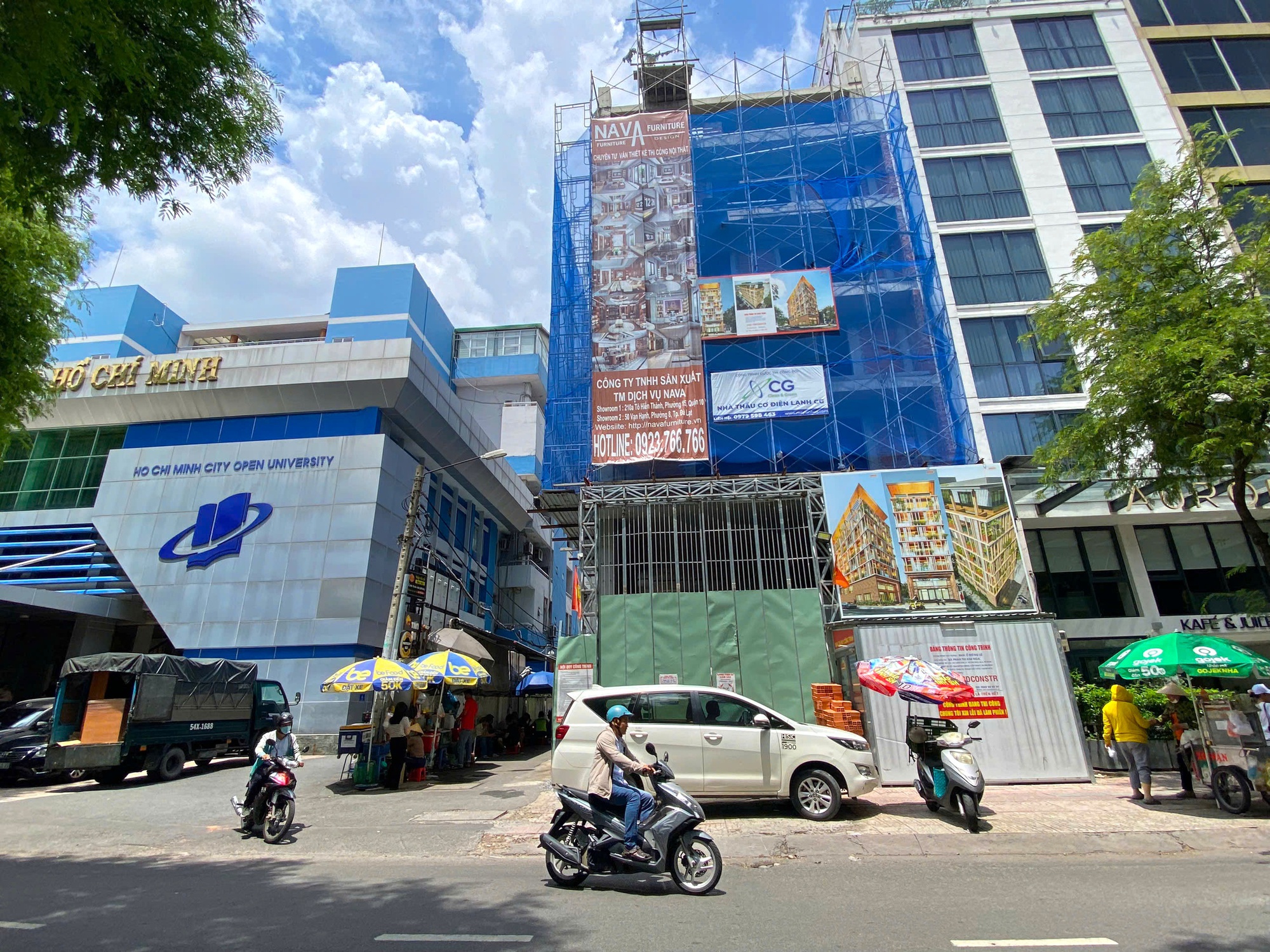
Ho Chi Minh City People’s Committee’s decision on the decentralization of construction order management within the city takes effect from November 20.
Accordingly, the Department of Construction is responsible for monitoring, inspecting, detecting, preventing, and handling two groups of construction projects.
First, construction projects for which the Department of Construction has issued construction permits or investment decisions; investment projects for which the Department of Construction has appraised the feasibility study report for construction investment and the detailed construction design after the basic design, as per its authority and as delegated or adjusted by the People’s Committee of Ho Chi Minh City.
Second, construction projects for which the specialized construction agency under the Ministry of Construction has appraised the feasibility study report for construction investment and the detailed construction design after the basic design.
Meanwhile, the Management Board of the City’s High-Tech Zone, the Management Board of the City’s Agricultural High-Tech Zone, and the Management Board of the City’s Export Processing and Industrial Zones are responsible for monitoring, inspecting, detecting, preventing, and handling all construction projects (including those appraised by the specialized construction agency under the Ministry of Construction) within the boundaries of the functional zones under their management.
Commune-level People’s Committees are responsible for monitoring, inspecting, detecting, preventing, and handling: construction projects without a construction permit that, according to regulations, must have a construction permit issued by a competent state agency.
Next are construction projects for which the commune-level People’s Committees have issued construction permits or investment decisions; investment projects for which the construction management agency under the commune-level People’s Committees has appraised the feasibility study report for construction investment and the detailed construction design after the basic design, as per its authority and as delegated or adjusted by the People’s Committee of Ho Chi Minh City.
Construction projects or parts thereof that arise after the project has been completed and put into use or after the land use right certificate and the certificate of ownership of houses and other assets attached to land have been updated.
Construction projects not under the jurisdiction of the Department of Construction or the Management Boards (including those exempt from construction permits).
This decision takes effect from November 20.
Transitional Provisions
Decision No. 25/2025 of the People’s Committee of Ho Chi Minh City also includes transitional provisions regarding the responsibilities of commune-level People’s Committees in managing, monitoring, inspecting, detecting, preventing, and handling construction projects under the permitting, appraisal, and approval authority of district-level People’s Committees (including projects exempt from construction permits) before July 1, 2025, but which have not yet started construction, are under construction, or have suspended construction.
The Department of Construction is responsible for handing over all files and documents related to projects under the permitting, appraisal, and approval authority of district-level People’s Committees (including projects exempt from construction permits) before July 1, but which have not yet started construction, are under construction, or have suspended construction, to the commune-level People’s Committees for continued management, monitoring, inspection, detection, prevention, and handling as prescribed.
Commune-level People’s Committees shall receive the handed-over files according to the assigned management areas; in cases where a project spans two or more commune-level administrative units, the unit with the larger proportion of the construction land area shall receive the files.
Upcoming Launch: $2.1 Billion, 11km Metro Project Connecting Ho Chi Minh City’s Core to Northwest Gateway in Just Over 2 Months
Ho Chi Minh City is set to commence construction on the second metro line, spanning from Ben Thanh to Tham Luong, on January 15, 2026. This highly anticipated project marks a significant milestone in the city’s public transportation development, promising enhanced connectivity and convenience for residents and visitors alike.
Unleashing Growth: A Wave of Infrastructure Investments Transforms Ho Chi Minh City’s Mega Urban Landscape
Discover the transformative impact of Ho Chi Minh City’s strategic infrastructure projects, including Highway 13, Ring Road 3, Ring Road 4, the Metro connecting HCMC to Binh Duong, the Bien Hoa – Vung Tau Expressway, and the HCMC – Thu Dau Mot – Chon Thanh route. These key developments are now prioritized for accelerated investment post-merger, fueling urban growth, industrial expansion, commercial opportunities, and a thriving real estate market.
Three Bridges Connecting Dong Nai and Ho Chi Minh City with an Investment of Over 40,000 Billion VND
Three major infrastructure projects—the Cát Lái, Long Hưng, and Phú Mỹ 2 bridges—aim to enhance road connectivity between Đồng Nai Province and Ho Chi Minh City. These initiatives, structured under a public-private partnership model, have received approval from the Đồng Nai Provincial People’s Council.
Land Registry Office: To Keep or Relocate to the Commune?
While the Ministry of Agriculture and Environment, along with the Land Management Bureau, propose transferring the authority, functions, and duties of provincial-level Land Registration Office branches to the commune level, the Ho Chi Minh City Institute of Natural Resources and Environmental Economics recommends maintaining the current structure. Their rationale highlights the unique complexities inherent in the natural resources sector, particularly the highly technical nature of land resource management.






